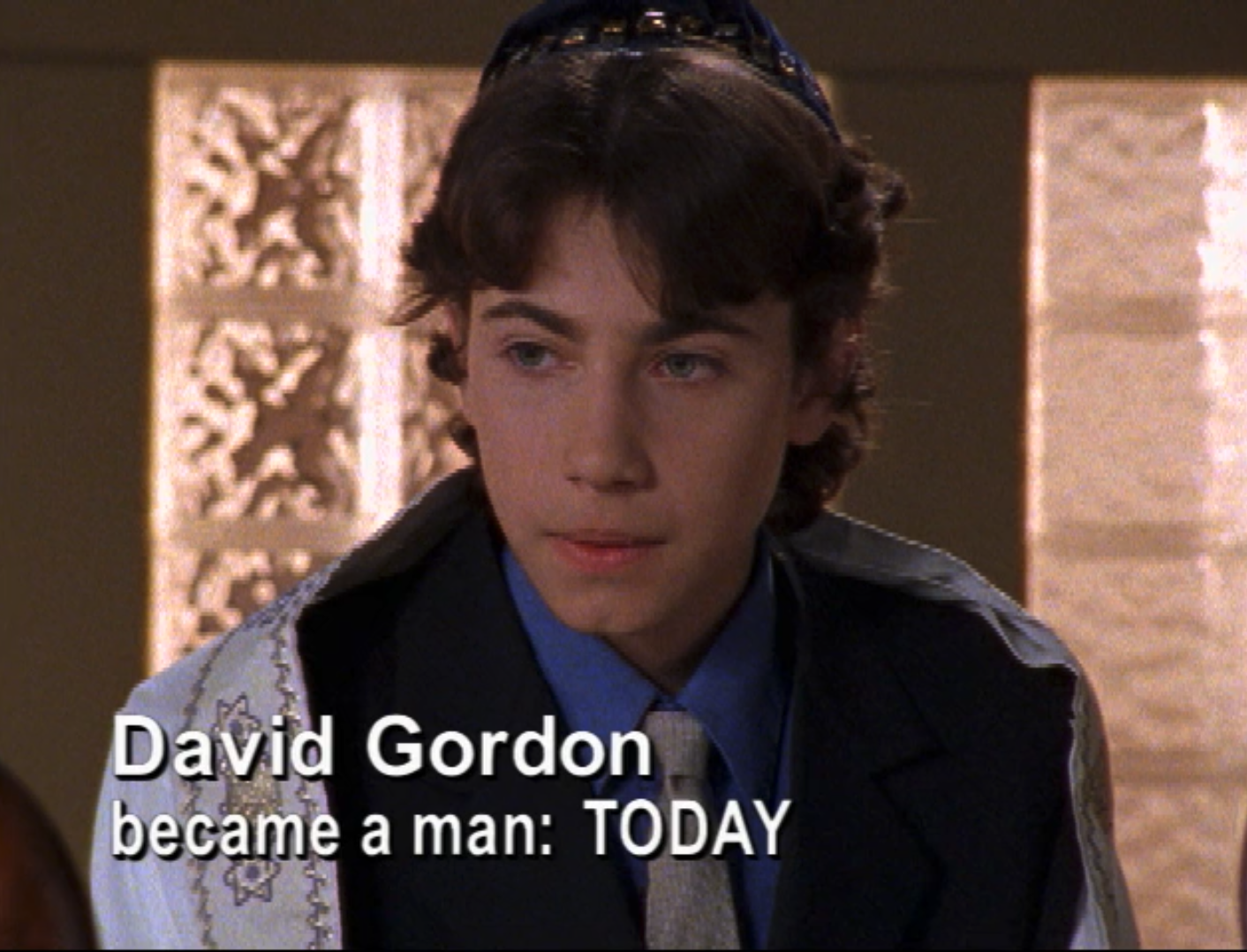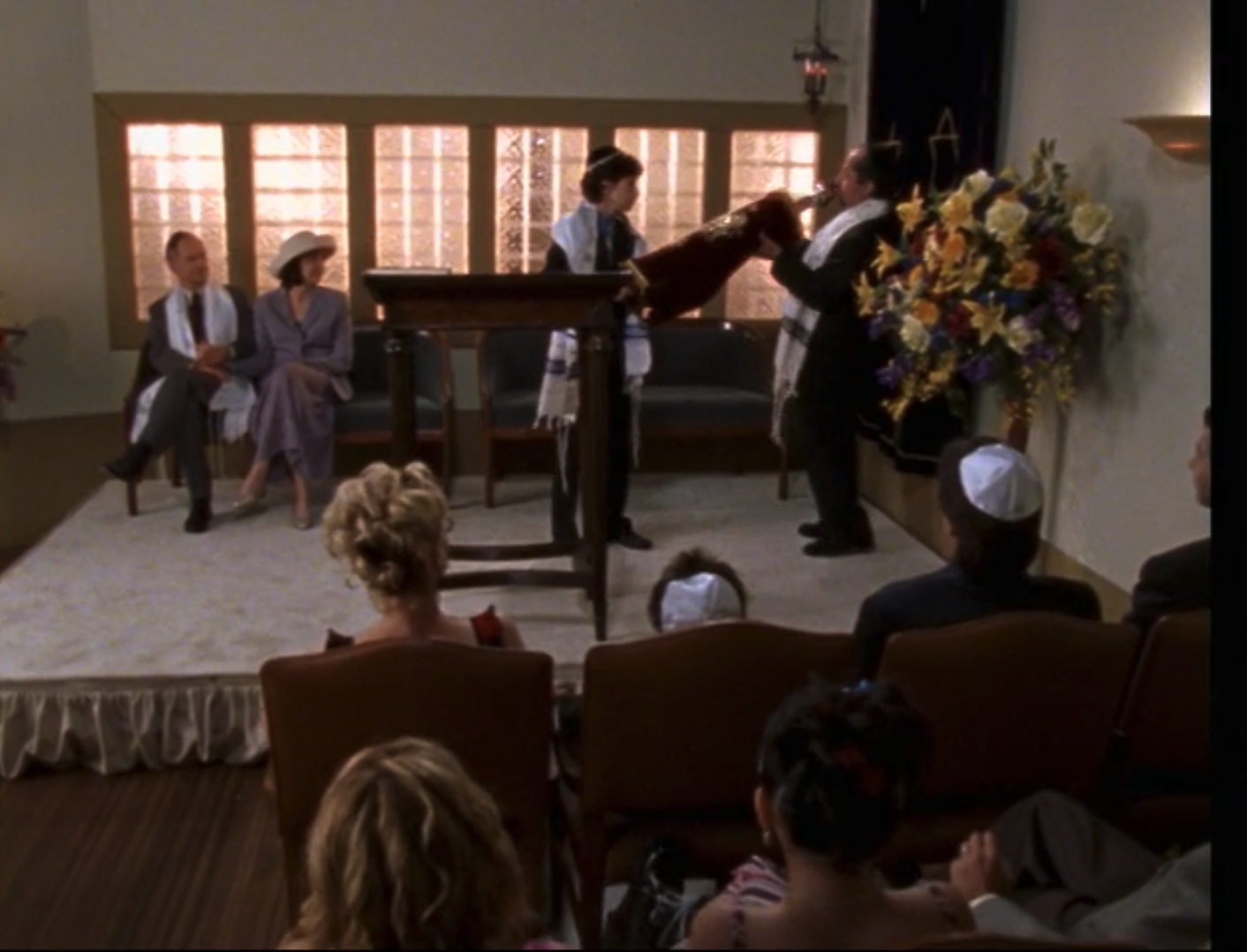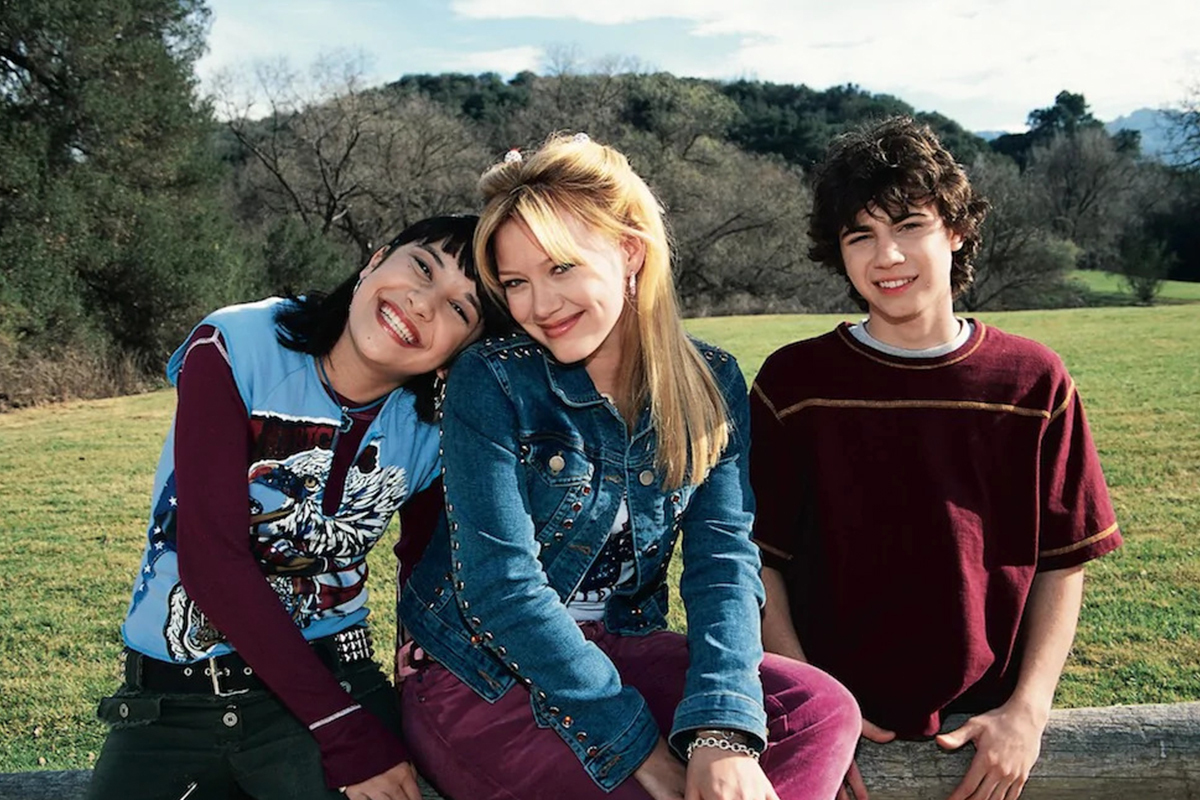“Lizzie McGuire” was the first show I really loved. It was Golden Age Disney, starring queen of the early-aughts Hilary Duff as our awkward protagonist navigating middle school and all its stressors: embarrassing parents, social pressure, struggles with self and body image. Somehow, we still wanted to be in Lizzie’s clogs, facing bullies and mean teachers, as long as we had Miranda (Lalaine) and Gordo (Adam Lamberg) by our side. When my family gave in and subscribed to Disney+ last year, “Lizzie McGuire” was one of the first things I (re)watched.
There was one episode in particular I was excited to get to: Gordo’s bar mitzvah. I had only a vague memory of seeing Lizzie’s precocious boy best friend in a tallit, on the bimah, giving his d’var Torah. Though I didn’t remember exactly what he said, I remembered that it felt like Gordo was finally accepting his faith and its traditions—even though it made him different from his peers. With few on-screen representations of Judaism that were made for kids my age and felt relatable to my Jewish experience—I thought I had aged out of “Rugrats,” though it’s only in adulthood that I’ve come to truly appreciate those holiday specials—this episode felt like a big deal and clearly stuck with me all these years later.
But when I rewatched it this year, I realized my memory of the episode was a bit off. “Gordo’s Bar Mitzvah” wasn’t so much about Gordo taking pride in his Judaism as it was about the significance and meaning of a bar mitzvah—specifically, what it means to become a man.

Seeing his classmates “growing up” around him (read: nicking themselves while shaving, coming to school full-on “Motocrossed” after receiving a dirt bike for a 14th birthday) Gordo laments the fact that his parents left the decision of whether or not to have a bar mitzvah up to him. Gordo explains the concept of a bar mitzvah to a confused Lizzie and Miranda, describing the ceremony—the Torah reading, the speech—that marks the transition from boyhood to manhood. Lizzie, slightly pained, says, “Ooh, that must take a really long time,” to which Gordo responds, “Nah, only about a half an hour.” He then says, almost in passing, there’s a party and you get some money. (This, of course, is a modern addition to the rite of passage, as is the bat mitzvah, for girls, and the notion of “having a” bar/bat mitzvah in the first place.)
But Miranda and Lizzie perk up at the mention of money: “People give you money?” Miranda asks, incredulous. “And you didn’t have one??” Lizzie exclaims. Even Lizzie’s cartoon version of herself weighs in: “Beaucoup bucks are at stake!”
The association between bar/bat mitzvahs and money is a strong one in the American consciousness, rooted in stereotypes that all Jews are rich, which are rooted in more insidious stereotypes and antisemitic conspiracy theories about Jewish influence. I was worried the episode was going to turn into Lizzie and Miranda scheming to get Gordo to celebrate his bar mitzvah for the money, but “Lizzie McGuire,” smartly, does not linger on the money aspect, because Gordo doesn’t linger on it. His view of the bar mitzvah is much more philosophical, and he approaches it with characteristic skepticism: “Like a half-hour ceremony would turn me into a man?”
To become a man is what Gordo wants, desperately. To try to solve his dilemma, he interviews multiple men to find out how and when they became men. One guy says it was when he got his first tattoo; Lizzie’s dad says it was when he learned how to drive. One man (unfortunately a very stereotypical depiction of a Native American man) says it was when he caught a fish with bare hands. Then there’s the “Two Big Guys,” who recall the 1986 Chicago Bears’ Super Bowl win and seeing Walter Payton cry. “Because they were man enough to be that way in front of millions of people,” one Big Guy says as they both tear up.
In the montage that follows, we see Gordo try and fail to get a tattoo, drive, and catch a fish. None of it works. We could chalk it up to the fact that he doesn’t embody traditionally masculine qualities. He’s nerdy and artistic, not particularly athletic. You might say he’s a Nice Jewish Boy, like a less cool, shorter Seth Cohen with more hair. But more on that in a moment.
Later, Gordo asks his parents why they left the decision to have a bar mitzvah up to him, lamenting that the moment has passed. They tell him that becoming an adult, and having a bar mitzvah, isn’t about how old you are or doing what others expect you to do. It’s about coming to decisions on your own, when you’re ready. Gordo comes to terms with the fact that his way of becoming a man is no less “manly” than that of his peers.

This is well-trodden territory for “Lizzie McGuire,” A good counterpart to “Gordo’s Bar Mitzvah” is episode 12 of the first season, “Between a Rock and a Bra Place,” in which Miranda and Lizzie want to buy their first bras, only to realize they aren’t ready yet. That episode was formative and important representation for anyone who felt they were the last person in school to start wearing a bra—who can forget Lizzie yelling, “I want a bra, okay?!” But despite a montage of “manly” activities, the message of “Gordo’s Bar Mitzvah” is a universal one, a lesson for kids of all genders that there’s more than one way to grow up.
And rather than scoffing at his fellow men’s expressions of manhood as primitive, or sissy, as the not-so-Nice Guys (Jewish ones, too) of the ‘90s and 2000s often did out of insecurity about their own masculinity, Gordo does the actual adult thing by realizing there’s no one correct way to show that you’re a man.
The final scene is the one I remember the most, with Gordo on the bimah, explaining why he decided to have a bar mitzvah. This is the only part we see; we can assume there was a celebration to follow and probably some gifts, likely even money. But that’s not the point. “Why this bar mitzvah, and not a tattoo? Or fishing? Or even a dirt bike?” Gordo asks his guests. “The answer is simple: It’s because this is what felt right to me.”
“Lizzie McGuire” takes some creative liberties with the actual ceremony—which Torah portion is about growing up? Did he memorize the Hebrew in only a few days?—but in the end, to borrow from one of the Big Guys talking about the ‘86 Super Bowl, “It was a beautiful thing.”
Late Take is a series on Alma where we revisit Jewish pop culture of the past for no reason, other than the fact that we can’t stop thinking about it?? If you have a pitch for this column, please e-mail submissions@heyalma.com with “Late Take” in the subject line.




